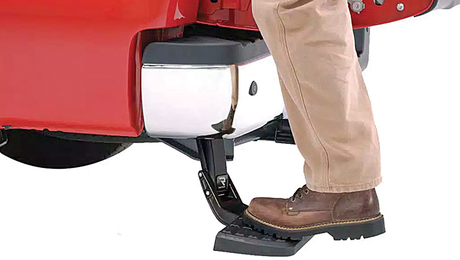*
I have a site just south of Denver on which I was planning to build a complete ICF house with a full basement. I am just now learning about expansive soils and the problems that can arise from them.
Should I abandon this idea or are there foundation construction techniques which will result in a stable concrete wall/floor system?
If so, any specific references for details would be appreciated.















Replies
*
Denver is noted for its expansive soils. Your best bet is to hire a geotechnical engineer to design the foundation for you. five to six thousand dollars for his/her fees is cheap when compared to the cost and expected value of a house. You can repair the wood framing easily, but you can do nothing about a bad foundation except replace it (at a cost of $50,000 or more). Do not skimp on a foundation in expansive soils, you will hate yourself if you do.
to learn more about expansive soils. Get a copy of "A gude to swelling soils for colorado homebuyers and homeowners" from the golorado geological survey (special publication 43). I think their phone # is 303-866-2611.
Also get a book called Foundations on Expansive Soils by Chen, F.H. He was/is a long time geotechinal engineer in the denver area, and the book is a classic.
*Denver is noted for its expansive soils. Your best bet is to hire a geotechnical engineer to design the foundation for you. Five to six thousand dollars for his/her fees is cheap when compared to the cost and expected value of a house. You can repair the wood framing easily, but you can do nothing about a bad foundation except replace it (at a cost of $50,000 or more). Do not skimp on a foundation in expansive soils, you will hate yourself if you do.to learn more about expansive soils. Get a copy of "A guide to swelling soils for colorado homebuyers and homeowners" from the Colorado Geological Survey (special publication 43). I think their phone # is 303-866-2611.Also get a book called Foundations on Expansive Soils by Chen, F.H. He was/is a long time geotechinal engineer in the denver area, and the book is a classic.
*
Each area of the country that has an unstable soil problem has its' own particular favored techniques for dealing with the problem. So I echo the previous poster, hire a good soils technician/engineer to design a fix. There are several techniques that have been successfully used in the Denver area so adapting one of them shouldn't be a big cost. All this assumes your area can be built on at a reasonable cost, some areas are strictly for those with big pocketbooks.
But, to avoid a problem like what happened to the people in Highland Ranch, be sure to talk to the County, your Insurance Company, and the neighbors. There is a lot of snake oil involved and you need to become pretty knowledgeable yourself to skid through it all. After all it is Your House, not theirs and you may find after the research that you need to build somewhere else.
*dont know how it would work up north with frost lines, basements, etc. but down south we use a slab on grade with post tension reinforcement for expansive soils with good results. the post tension guys have their own in house engineers usually also
*
Arnie, I built a house in Fort Collins for a guy in '84, about an hour north of Denver. The foundation had to be engineered to get a permit. As I was coming from some of the most stable soils in the nation (western nebraska), I thought this sounds like overkill. By the time the basement was dug, I was rerouting my one track mind. The mountain of soil from the excavation wouldn't fit in two holes after one good rain. Much bentonite.
The soils engineer called for void forms. These are nothing more than cardboard boxes, in this case 8" wide and 4" high to fit inside the wall forms. The plan specified their location. Picture this; The wall forms were set directly on the ground, and as they were set, the void, generally 4' long, was set in between the forms, spaced on average 16" apart, so the foundation was bearing on soil only 16" every 4'. If you got enough expansion in the soil, it would crush the cardboard box and not lift the foundation. The cost of engineering was less than $800. Maybe that low price was the reason there were no specs for the basement floor. I just run expansion joint around the perimeter and now the basement floor floats. Btw, (Ithink that means by the way?) when I finished the basement, I pegged 1/2" rebar in the floor and drilled the bottom plate of partition walls to fit. With 1/2" expansion joint layed flat under the walls, and walls nailed tight to ceiling above, there is room for floor to raise and lower some. 15 years and everything is sound. Good luck, Warren
*
I have a site just south of Denver on which I was planning to build a complete ICF house with a full basement. I am just now learning about expansive soils and the problems that can arise from them.
Should I abandon this idea or are there foundation construction techniques which will result in a stable concrete wall/floor system?
If so, any specific references for details would be appreciated.